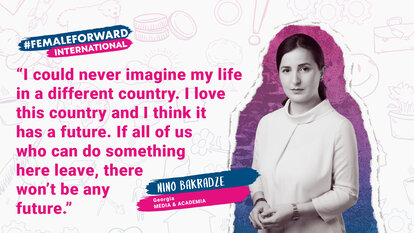#FEMALEFORWARDINTERNATIONAL
Meet Nino Bakradze from Georgia
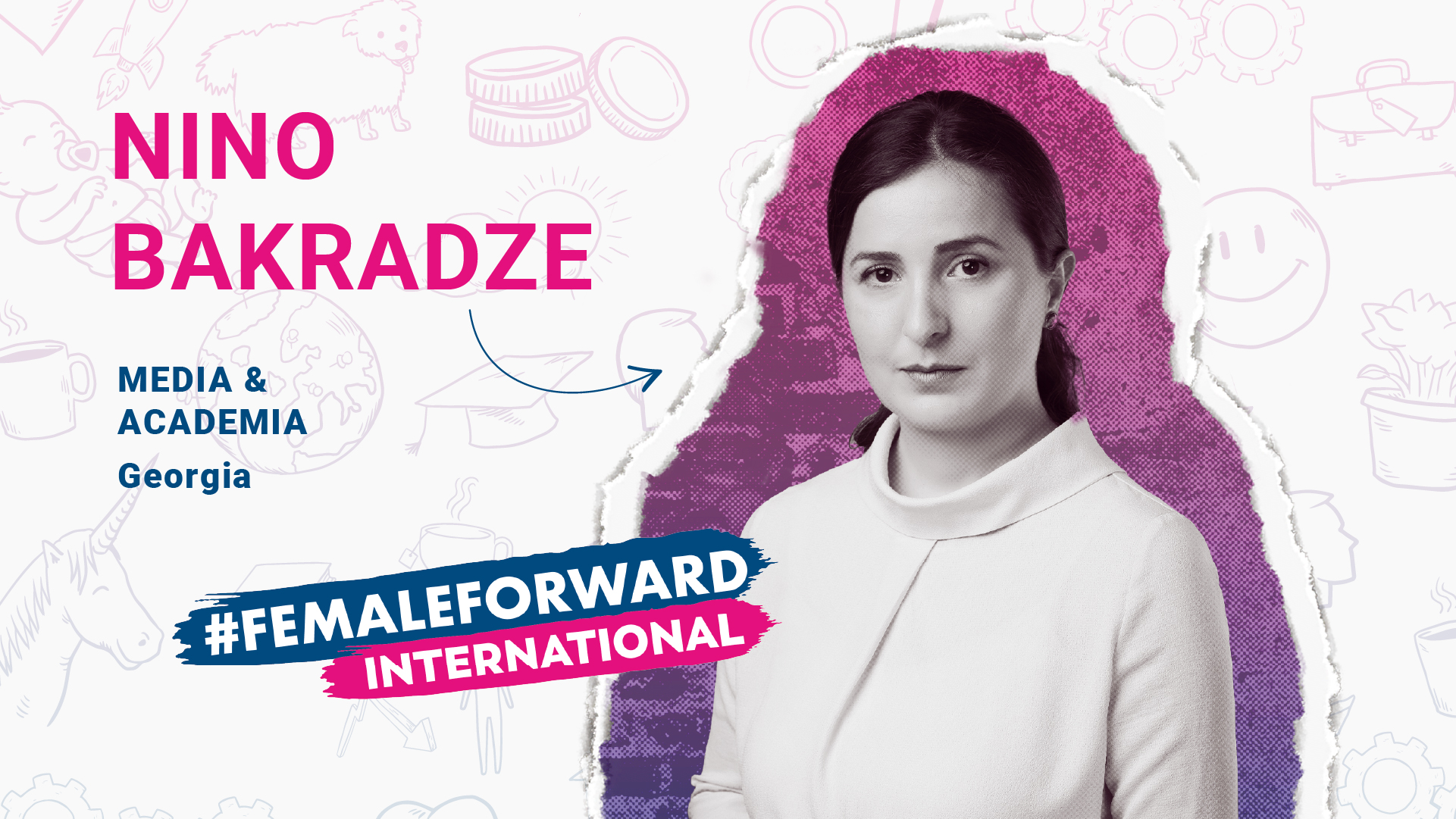
The investigative journalist who uses collaborative reporting and cross-border investigations in the fight against corruption
In Georgia, journalism is traditionally considered a “female” profession, states investigative journalist Nino Bakradze. She adds that since people do not have sexist views towards female journalists, her profession has not complicated her life much. Being a female in Georgia is complicated enough, so being in journalism just adds to that.
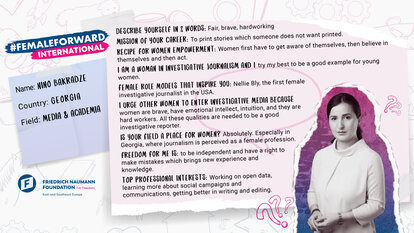
Nino Bakradze is the editor and co-founder of Investigative Journalists' media project iFact, based in Tbilisi, Georgia. She works in an all-female team to uncover some of the most gruesome political scandals in Georgia, and her work is used as the basis for reporting by many Georgian outlets.
Her investigative talent became apparent in college, where she graduated with a master’s degree in Media Management and Journalism. Today, she is a part of the Organized Crime and Corruption Reporting Project (OCCRP), a global network of investigative journalists who engage in cross-border investigations. In 2015, she won an award for excellence in investigative journalism for her work uncovering the sloppy investigation of a forest ranger’s murder. Besides being a renowned investigative journalist, Nino spends a lot of time teaching undergraduates and graduates while also lecturing professional journalists in different preparatory classes.
Nino points to three crucial journalistic projects she is proud of. The first is her work on the Panama papers and recently she did a strong piece on a hydropower plant built despite the protests of the local community. Her team’s work on the issue led to protests and revisions of the government’s plan for the plant. Finally, her media produced a 40-page investigation about the failed renovation of a 12th century UNESCO World Heritage site in Georgia, leading to the resignation of responsible officials.
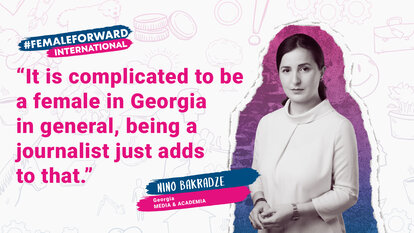
Nino says she has not been pressured because of her work. What she finds problematic is the strong entrenchment of gender roles in society: in her line of work, she has never been discriminated against because of her sex. But that may be only because Georgians are used to journalism being a “feminine” – and not very prestigious – profession. However, the picture changes when one looks at official government organizations, where they hire mostly men. Private companies also prefer to hire men, Nino explains. But the most notable problem in terms of gender equality is domestic violence.
“My journalistic role is not making anything more problematic. Gender issues are the problem, your profession doesn’t matter. Being a woman in general is hard,” she says. As a young mother you’re not helped, Nino says. The only help you can get is from the family. The system and the state offer no support and the maternity leave payments are so low that many women go back to work because they can’t even afford diapers with that money. When she gave birth to her son, who is now four, she only waited for three weeks before returning to work. “There is no other choice”, she shrugs.
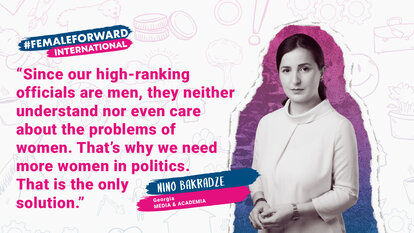
Since our high-ranking officials are men, they don’t understand the problems of women or even care about the problems of women. That’s why we need more women in politics, she says. That is the only solution. The Church – the most powerful and reliable institution for people in Georgia – does not say a word about femicides or women’s problems at all, continues Nino. It is a masculine institution hostile to women’s rights. Society, on the other hand, is indifferent, nihilistic. There is plenty of “slacktivism” online but it is not followed by action in the real world, Nino says.
But the wind of change is blowing in Georgia and Nino says social media also has a positive impact: women are getting more information about their rights online, finding support on social networks, and finding other women who share their burden. This can change women’s future, Nino hopes.
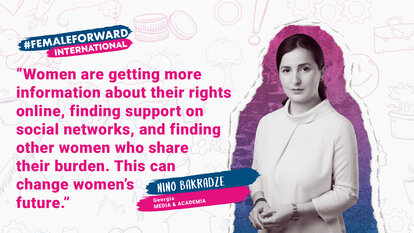
Despite these issues, Nino would never leave her country, unlike many young Georgians who look for success elsewhere, having lost all faith in their country. “I could never imagine my life in a different country. I love this country and I think it has a future. If all of us who can do something here leave, there won’t be any future. We must stay and fight for our rights, give good examples for others: have a job, a career even, raise your child here, fight for others’ rights. This is what I aim to do: through my work, I give a platform to others, so that their voices can be heard. This is my service to society”, she says. “I also believe that if you don’t love your country, if you don’t think about the well-being of your nation, you cannot be a good journalist.”
Action is necessary for women, she believes, because the issues she describes are getting out of hand. Women are gaining a sense of power, she says, and traditions which are no longer useful are being rejected. Her personal role in all this? She hopes to continue to develop her (for now) all-female-led media. She wants to teach. And she would happily work on causes which further women’s rights.
